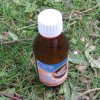A magic cocktail of seven key chemicals can reprogramme adult cells to turn them into stem cells capable of producing any tissue in the body, a new study has shown.
a new study has shown.
In recent years, scientists have shown that specialised - so called "differentiated" - adult cells can be turned back into unspecialised stem cells by activating a handful of key genes that appear to control cell behaviour.
But the only way to do this was to use agents such as viruses to carry copies of these genes into the cells, running the risk of destabilising the DNA and potentially triggering cancer-causing changes or mutations.
Now, writing inScience, a group of researchers at Peking University in Beijing, led by Hongkui Deng, have discovered a mixture of seven simple chemicals that can do the same jobs as the previously-identified gene combo, turning adult cells into so-called pluripotential stem cells, indistinguishable biochemically, genetically and behaviourally from the earliest stem cells produced in an embryo.
The team made the breakthrough by laboriously testing thousands of small molecules on dish-grown cultures of cells. The cells had been modified so that when the correct "reprogramming" genes were all activated, the cells glowed green, showing the scientists had been successful.
They eventually identified a magic combination containing 7 molecules that turned a small fraction of mouse skin cells, known as fibroblasts, into cells they are dubbing ciPSCs or "chemically induced pluripotent stem cells."
Down a microscope these cells resembled embryonic stem cells. Injected into a developing mouse embryo, the cells gave rise to parts of all of the different tissues found in an adult mouse, proving they were genuinely "pluripotent". Moreover, the resulting adult mice remained healthy for at least 6 months.
The efficiency of the reprogramming process is, admittedly, very low, with just 0.2% of treated cells successfully re-programming to be stem cells.
Nevertheless, this is no lower than the rates achieved using existing genetic techniques, and now the researchers are beginning to explore further to discover exactly how their chemical cocktail works in order to improve the efficiency of the process and, presumably, whether this same cocktail can work on human cells too...



Comments
Add a comment